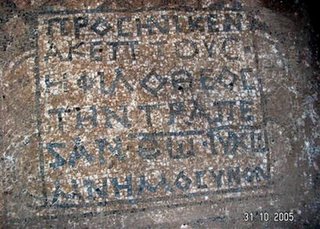
Thirty-Third Sunday in Ordinary Time, Year A
Matthew 25:14-30
1. This parable follows the parable of the ten virgins from last Sunday’s Gospel.
2. It is both a parable of discipleship (how we are serving in God’s Kingdom) and of future judgment (how we will be judged when Our Lord returns).
3. In this parable of the kingdom all are not equal, rather each servant is entrusted with talents commensurate with their ability…literally their power (
dynamis)
4. A “talent” was the largest denomination in Greek currency, roughly equivalent to 10,000 denarii. In another parable we are told that one denarius is one day’s wage. We might equate a talent with a million dollars in our economy. The point here being that even one “talent” was equivalent to a persons lifetime of earning. What should not be lost on the modern reader is that “talent” was money, not aptitude.
5. Each servant is entrusted with this enormous gift, i.e. each Christian believer has been given everything they need in life freely from Our Lord whose salvation is a gift to us.
6. The master leaves no instruction on what to do with the money that he leaves to his servants before going on his journey. In the end the accounting will relate to how the master is thought of and how this propels the good servants to use their talents versus the wicked one.
7. “Immediately” the good servants put the money they have received to use and make more, the bad servant buries it in the ground (might this be an indication of believing in death more than life—already a sign of living not with belief in the resurrection and return of Jesus but rather fearing that he will not return and death is the true end?) St. John Chrysostom interpreted this behavior as “selfishness” an unwillingness to help others.
8. It was considered “safe” to bury money in the ground to protect it from thieves, but this behavior is condemned by Jesus. His followers are to let their light shine before all. Belonging to the Kingdom is all about risk because it is belief in the power of the cross not fear of those who can take one’s life but rather fear of him who after our life has been taken can cast us into Gehenna.
10. In the parable the master returns “After a long time”…a theme that at least in Matthew’s Gospel, Jesus return, his second coming doesn’t happen when his disciples expect (in Matthew 24 an immediate return is forecast, in 25 a later than expected return is forecast—we know neither the day nor the hour).
11. The confession of the servant acknowledges that what they made of their talents (life?) was made possible first of all because of the gift of the talent in the first place from the Lord. His response “Well done, my good and faithful servant” echoes what every disciple desires and echoes the sentiments of those who felt “joy” at the funerals of both Pope John Paul II and Blessed Mother Teresa who stand as modern examples of the good servants in this parable. Notice the response of the Lord to the second servant entrusted with less talents at the beginning of the parable is the same.
12. One might take the “wicked, lazy servant” as those who believe that God is so all powerful that they literally do not matter. Yet the point of the Gospel is that while God is all powerful he has humbled himself and given us a mission. Our prayers, good works all empowered by Him do matter and we can not stand back asking God why he delays in returning when he has empowered us to do His will on this earth. What are we doing with the power that God has entrusted us? Do we pray like everything depends upon our prayers? Do we work and speak out like everything depends upon our efforts and voice? Or do we wait for those good and faithful servants to do this for us?
13. The wicked servant seems to think that his action was “good” even though it leads to his condemnation. This parable attacks humility when it is used as a pretense for not acting and as a way of using God as a foil for our own inactivity.
14. The wicked servant is cast out into the darkness. Might there be a psychological interpretation for the fruit of a life lived not for others but for self? One does not feel that they have used their lives wisely.
R. ReadRead Matthew 25:14-30 slowly. What strikes you as you read the selection? You might want to read it again before you go to Mass on Sunday.
A. AttendListen to all of the readings at Mass. How do the First Reading and Responsorial Psalm add to what the Gospel says? What speaks to you as you hear the Gospel proclaimed? What in the homily touches you or adds to what you were already thinking?
Y. YieldHow can you take the gift of your Baptism and use it daily to add to the Kingdom of God? Where can you bring healing to others? Who needs your prayers? Who needs the money that God has entrusted to you? How can you take what you have been given and have more to give Our Lord when he returns?

